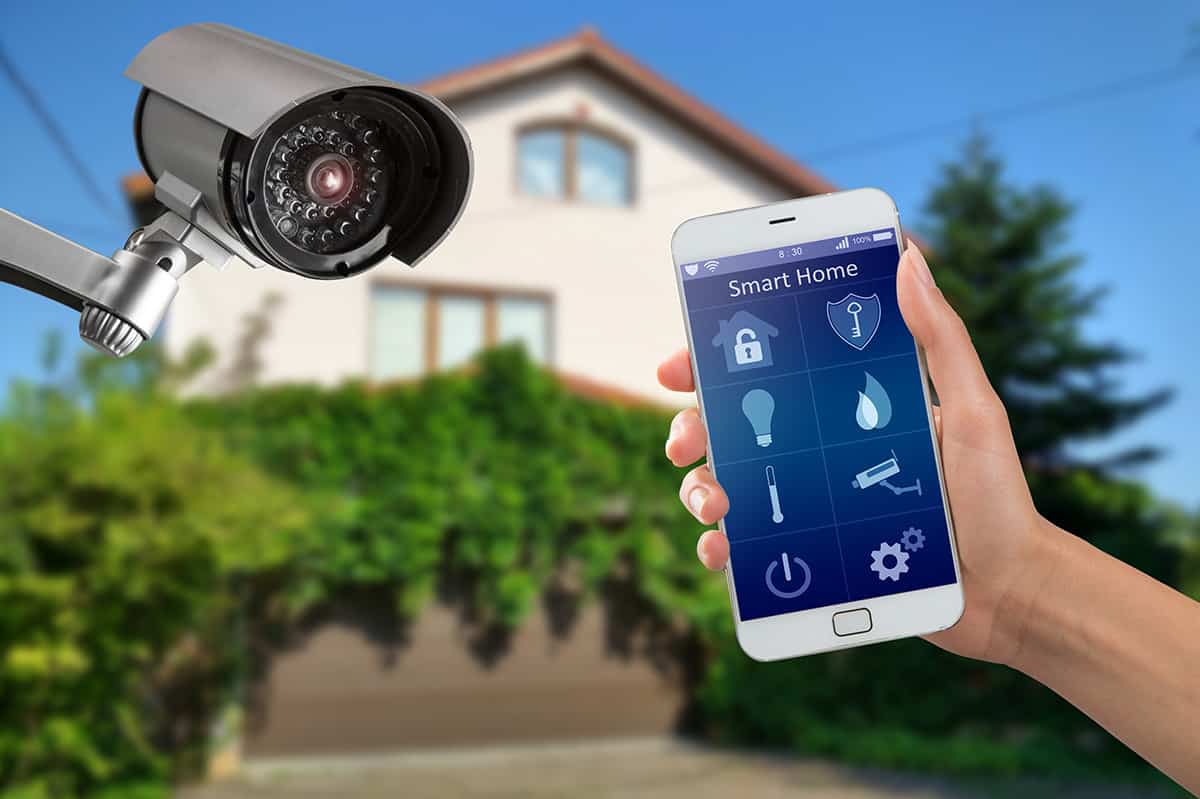Is the increasing affordability of low-cost smart doorbells with cameras leading to more disputes between neighbours? The short answer is not necessarily – as long as they are installed with due consideration. What people cannot and should not do is have a set up that effectively puts their neighbours under continuous surveillance.
We can easily understand why people want security and reassurance at knowing who is at the door and ideally being able to talk to them to check their credentials before letting them in, and smart doorbells may seem ideal when the building doesn’t have a sophisticated entry system. Just bear in mind the privacy of other users of the same entrance.
In a recent case1 in Oxfordshire, a judge found in favour of a claimant who said she felt harassed by continual surveillance by a neighbour who had four devices that were positioned such that they were recording images and audio of her as she entered and left her own home or used her own garden. Whether the surveillance was intentional or not, it was sustained, continuous recording of someone else both entering and leaving and while on their own property. The court’s decision potentially led up to damages that would mean bankruptcy for the cameras’ owner. Of course, it’s quite hard to understand why common sense didn’t prevail in this case before things went so far, but disputes between neighbours do so often go nuclear.
What does the law say on home security cameras?
The use of surveillance technologies is governed by a range of measures. Some provide advice and guidance, like the Government’s Surveillance Camera Code of Practice2, which sets out principles for operators to follow. Others are legal requirements, such as the rules for collection and processing of personal data under the Data Protection Act 2018 and the UK General Data Protection Regulation4 (GDPR).
These measures aim to ensure that any use of surveillance technologies is for legitimate purposes, proportionate, and compliant with relevant legal obligations. A key concern is that surveillance should, as far as possible, be with the informed consent of those being surveyed.
As you would expect, purely “domestic use” of personal data by a private individual is exempted from the data protection legislation, for example your address book, but it’s well established that home surveillance systems, including CCTV and smart doorbells, are subject to UK data protection legislation.
If your cameras don’t capture images beyond the property boundary, the data protection laws won’t apply. If they do, such as a neighbours’ property or public streets and footpaths, then use of the system is subject to the data protection laws. Users can still capture images, but need to show they are doing it in ways that comply with the data protection laws and uphold the rights of the people whose images you are capturing. In short, they will need to be able to explain why they think capturing the images is more important than invading the privacy of your neighbours and passers-by.
Users recording beyond their own boundaries should put up signs saying that recording is taking place and why, and minimise the amount of footage caught, keeping it securely and deleting it as soon as it’s not needed. Audio should be disabled except when actually needed for conversation (some devices don’t allow you to do that!). Take heed of the Information Commissioners’ Office guidance5 on minimising what you record and keep, keeping it securely, and keeping it no longer than absolutely necessary.
- https://www.charlesrussellspeechlys.com/en/news-and-insights/insights/commercial/2021/fairhurst-v-woodard-property-audio-and-video-surveillance-system-breached-gdpr/
- https://www.gov.uk/government/publications/surveillance-camera-code-of-practice
- https://ico.org.uk/for-organisations/guide-to-data-protection/introduction-to-data-protection/about-the-dpa-2018/
- https://ico.org.uk/for-organisations/guide-to-data-protection/guide-to-the-general-data-protection-regulation-gdpr
- https://ico.org.uk/your-data-matters/domestic-cctv-systems-guidance-for-people-using-cctv/
FP1556-2021
The sole purpose of this article is to provide guidance on the issues covered. This article is not intended to give legal advice, and, accordingly, it should not be relied upon. It should not be regarded as a comprehensive statement of the law and/or market practice in this area. We make no claims as to the completeness or accuracy of the information contained herein or in the links which were live at the date of publication. You should not act upon (or should refrain from acting upon) information in this publication without first seeking specific legal and/or specialist advice. Arthur J. Gallagher Insurance Brokers Limited trading as Deacon accepts no liability for any inaccuracy, omission or mistake in this publication, nor will we be responsible for any loss which may be suffered as a result of any person relying on the information contained herein.
